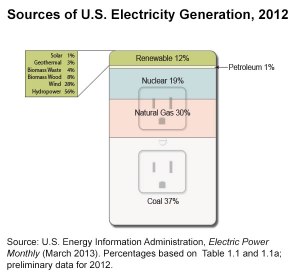If you haven’t noticed, the political world likes to categorize ideas to the left or right side of the aisle and then holds onto them until the bitter end. And if you’re on one side of the aisle, don’t you dare support an obviously excellent idea that happens to fall on the other side of the aisle! Tarred and feathered you will become! I absolutely loathe this truth about politics, but that is another story entirely. I bring this up because energy policy is political and most people develop opinions about our nation’s energy needs even though they don’t know how to flip a circuit breaker! Sad but true.
So where does biomass stand among the politically polarized masses? There is one group of people that proclaim ‘drill baby drill!’ Another group of people shout ‘global warming will kill us all!’ How do people with such strong views about energy policy feel about this renewable resource? I can safely assume that there are those who believe it’s is probably too costly simply because ‘it’s renewable’ and there are others who are for it regardless of cost because ‘it’s renewable’. I would encourage you to avoid these ways of thinking no matter what the issue. More fittingly, I will give you some useful information that I have found that will help you realize true benefits of using biomass.
1. National Security
Oil is a main factor when it comes to the sustainability of our armed forces. As the supply and demand of oil ebbs and flows with the wind, so does our national security. No war planes will protect us if they do not have fuel.
It is interesting to note that we use fossil fuels both for transportation use as well as for electricity production. Since we can make fossil fuels easily transported (ie. diesel, gasoline, liquefied natural gas, etc.) it makes more sense to use them in transportation and use other resources such as biomass and solar at stationary power plants. This will make the U.S. less dependent on other countries for oil and will shield of from the volatility of oil supplies. Utilizing biomass for electricity allows more oil and natural gas to be held in reserves for transportation and military use. Therefore, biomass can increase our national security.
2. Stabilized Energy Costs
Diversification of energy sources provides a buffer for fluctuating energy prices. It goes back to the old adage: don’t put all your eggs in one basket. For example, Florida currently relies on natural gas for 62% of its electricity production. What happens when the day comes that natural gas prices double or triple due to supply and demand? Consumers will be stuck with higher prices until more affordable options can be integrated into the system. Biomass plants that are sprinkled throughout the country can offset such peaks in energy prices from other sources by supplying localized renewable power.
3. Reliability
In step with the last point, diversification of energy sources also provides greater reliability to the grid. The picture from the U.S. Energy Information Agency states that the fuel used for electricity production in 2012 was as follows:
This is a point where I believe America has really missed it. While clean air and renewability of resources are good things, I believe the idea of diversification alone is a greater benefit than any other. You can see that the major opportunities for growing diversification in electricity production lie within the renewable sector. If a major catastrophe were to disable a large power plant or stop a fuel supply, we would experience blackouts without a back-up plan. On the other hand, if more biomass plants along with solar, wind and other renewables were incorporated into the grid, we would rely less on the major fuel sources. I think this is huge. Renewable power facilities in general are built on a smaller scale and are less susceptible to causing major disruption if they were to go offline.
4. Environmental Benefits
It is widely accepted that burning biomass is a carbon-neutral process. This means that for all of the carbon that is released during combustion, the same amount was taken out of the atmosphere originally by that very same plant through photosynthesis. The result is no new carbon introduced to the atmosphere. With fossil fuels, all of the carbon has been locked away underground and is a true addition to today’s atmosphere if burned. Other environmental benefits include large reductions in nitrogen oxide and sulfur dioxide emissions compared with burning coal. All this means that using biomass puts less pollution in our atmosphere.
So there it is, a non-political analysis of the societal benefits of biomass. The cool thing is that the cost of fuel for biomass is not far off from other sources. A study back in 2001 found at eia.gov shows that biomass fuel was at $1.25 per million Btu while coal was at $1.23 per million Btu. Now I’m not saying that there are zero negative consequences of using biomass and that my analysis is all inclusive; I can assure you it’s not. What I am saying though is that I believe the benefits listed above are significant and can serve our society well. Whether your politics lean left, right or are nonexistent, there is wisdom in keeping an open mind with energy policy. There is wisdom in considering the big benefits of biomass.
Check out this video for a cool case study of biomass increasing forest health while producing local power:


